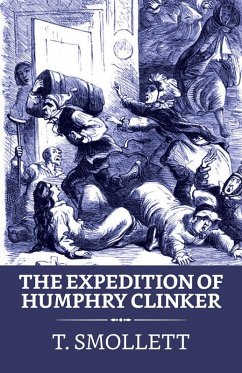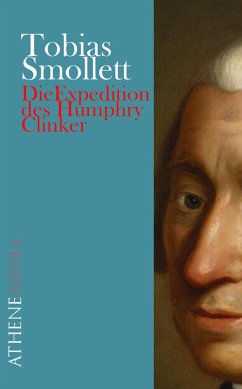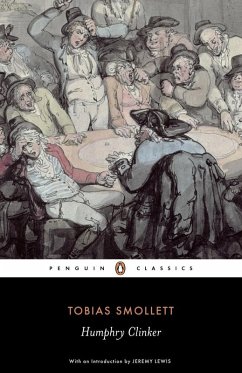
The Expedition of Humphry Clinker (eBook, ePUB)

PAYBACK Punkte
0 °P sammeln!
I have received your esteemed favour of the 13th ultimo, whereby it appeareth, that you have perused those same Letters, the which were delivered unto you by my friend, the reverend Mr Hugo Behn; and I am pleased to find you think they may be printed with a good prospect of success; in as much as the objections you mention, I humbly conceive, are such as may be redargued, if not entirely removed-And, first, in the first place, as touching what prosecutions may arise from printing the private correspondence of persons still living, give me leave, with all due submission, to observe, that the Le...
I have received your esteemed favour of the 13th ultimo, whereby it appeareth, that you have perused those same Letters, the which were delivered unto you by my friend, the reverend Mr Hugo Behn; and I am pleased to find you think they may be printed with a good prospect of success; in as much as the objections you mention, I humbly conceive, are such as may be redargued, if not entirely removed-And, first, in the first place, as touching what prosecutions may arise from printing the private correspondence of persons still living, give me leave, with all due submission, to observe, that the Letters in question were not written and sent under the seal of secrecy; that they have no tendency to the mala fama, or prejudice of any person whatsoever; but rather to the information and edification of mankind: so that it becometh a sort of duty to promulgate them in usum publicum. Besides, I have consulted Mr Davy Higgins, an eminent attorney of this place, who, after due inspection and consideration, declareth, That he doth not think the said Letters contain any matter which will be held actionable in the eye of the law. Finally, if you and I should come to a right understanding, I do declare in verbo sacerdotis, that, in case of any such prosecution, I will take the whole upon my own shoulders, even quoad fine and imprisonment, though, I must confess, I should not care to undergo flagellation: Tam ad turpitudinem, quam ad amaritudinem poenoe spectans-Secondly, concerning the personal resentment of Mr Justice Lismahago, I may say, non flocci facio-I would not willingly vilipend any Christian, if, peradventure, he deserveth that epithet: albeit, I am much surprised that more care is not taken to exclude from the commission all such vagrant foreigners as may be justly suspected of disaffection to our happy constitution, in church and state-God forbid that I should be so uncharitable, as to affirm, positively, that the said Lismahago is no better than a Jesuit in disguise; but this I will assert and maintain, totis viribus, that, from the day he qualified, he has never been once seen intra templi parietes, that is to say, within the parish church.
Dieser Download kann aus rechtlichen Gründen nur mit Rechnungsadresse in A, B, BG, CY, CZ, D, DK, EW, E, FIN, F, GR, HR, H, IRL, I, LT, L, LR, M, NL, PL, P, R, S, SLO, SK ausgeliefert werden.













